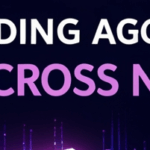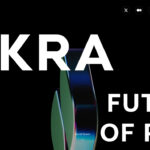I want to discuss the Tokens on Kraken That are Being Delisted in this article.
Kraken is one of the biggest cryptocurrency exchanges, and now and then, these exchanges have to examine their listings properly, considering the legal aspect of it as well as the demand in the market for those listings.
Knowing the reasons and circumstances behind these removals helps traders make better decisions regarding their investments, managing their portfolios and seeking out different exchanges to continue investing with.
Key Point & Tokens on Kraken That are Being Delisted
| Cryptocurrency | Key Point |
|---|---|
| Monero (XMR) | Known for its strong privacy features using ring signatures. |
| Zcash (ZEC) | Utilizes zk-SNARKs for private transactions. |
| Dash (DASH) | Focuses on fast, low-cost transactions with its InstantSend feature. |
| Verge (XVG) | Uses multiple anonymity networks, including Tor and I2P. |
| Beam (BEAM) | Implements the Mimblewimble protocol for privacy and scalability. |
| Grin (GRIN) | Another Mimblewimble-based coin focusing on privacy and fungibility. |
| Horizen (ZEN) | Provides private transactions with zk-SNARKs and a scalable blockchain. |
| Komodo (KMD) | Features a decentralized exchange (AtomicDEX) for secure peer-to-peer trading. |
| Secret (SCRT) | Offers privacy-preserving smart contracts using its unique privacy layer. |
| Firo (FIRO) | Focuses on privacy with a hybrid approach using both zk-SNARKs and Lelantus protocol. |
Top 10 Tokens on Kraken That are Being Delisted
Monero (XMR)
Kraken announced earlier that it will suspend the trading of XMR tokens on its platform for specific jurisdictions only due to legal obligations cited by various regulators concerning the use of privacy coins.
Monero, which provides its users with superior privacy, is increasingly facing headwinds from regulators who consider such tokens hard to supervise for AML/KYC purposes.

Kraken’s steps seem to follow the feet of other exchanges trying to respond to the ever changing legal landscape.
Users who wish to hold the tokens bought on Kraken are advised to make withdrawals ahead of the delisting date to be able to access their assets after that.
The shift illustrates the increasing trend of regulatory pressure concerning private cryptocurrencies.
Monero Features
Anonymity: Monero has strived to maintain anonymity and untraceability by utilizing privacy protocols such as ring signatures and stealth addresses.
Issuance And Transfer: In stark contrast to other tokens, the privacy attributes of Monero make it easy for users to transfer their funds since every token appears the same as any other (including fungibility).
Legal Issues: Because of the privacy layers of Monero, it has been under the eye of regulators and even delisted by some agreements owing to non-ammo regarding anti-money laundering.
Zcash (ZEC)
Kraken has taken down all Zcash (ZEC) tokens in specific regions, explaining the decision with an apprehension toward privacy coins.
Focused on anonymity, Zcash’s optional features through zero-knowledge proofs have gathered attention because of the sizeable ability to hide transaction particulars and thereby, cryptocurrencies make anti-money laundering policies even more complex to regulate.

The decision made by the said exchange shows how companies are trying to manage themselves against the compliance requirements, which are getting stricter and universal.
Users using the ZEC token on Kraken are advised to withdraw their tokens before the deadline for the delisting to enable them to access their assets.
It further highlights the growing regulatory pressure on privacy, Trying out all edges to practice their constitutional rights coins period of the day.
Zcash Features
The following are some of the most essential characteristics of Zcash (ZEC) tokens that are being delisted and are available on Kraken Exchange:
Private Transactions: Every Zcash transaction is private because it leverages zk-SNARKs (zero-knowledge succinct non-interactive arguments of knowledge). This means Zcash users can send shielded transactions, where the information about senders and recipients is withheld, including their addresses and the total number involved.
Discretionary Privacy: In Zcash, users can have shielded or transparent addresses, with the latter being more public and offering lesser privacy. In this way, users have discretion over the amount of privacy they want to apply in their day-to-day use.
Widespread Adoption Issues: For Zcash, the most adopted feature is also its downfall; because of its privacy characteristics, Zcash is monitored by regulators that oversee AML compliance, with some exchanges like Kraken deciding to cease listing the token in some jurisdictions.
Dash (DASH)
Given rising regulatory scrutiny on cryptocurrencies, Kraken has decided to stop trading Dash (DASH) tokens in certain regions.
Since Dash brands itself as a fast and efficient digital payment method, its PrivateSend function remains at the center of regulatory agencies’ attention for non-compliance with anti-money laundering (AML) legislation.
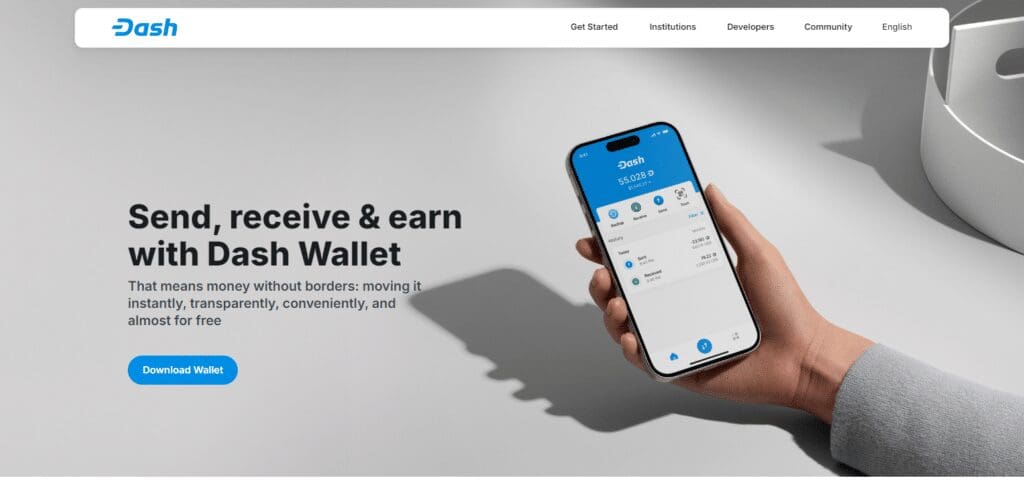
A similar policy was adopted by Kraken’s competitors earlier for the same purpose— compliance with legislatures that are being developed.
Kraken advises its users holding DASH tokens to withdraw them from the exchange to maintain access to them.
This situation adds to the list of issues that privacy-enhanced digital assets face amid the changing crypto landscape.
Dash Features
InstantSend: As an additional feature, Dash uses Almost instantaneous transaction confirmations or rather termed as if it is InstantSend and this is what makes it suitable for most daily transactions and much more payments.
PrivateSend: Additionally, Dash has this optional feature for users who prefer more engagement in privacy where their transactions will get mixed coins in order to create a more decentralized platform known as hypostatic.
Regulatory Concerns: Given the nature of Dash, it has come under more and more regulatory oversight from institutions looking at anti-money laundering and KYC measures which is why Kraken has opted to delist it across some countries
Verge (XVG)
With regulatory issues surrounding privacy coins, Kraken has restricted transacting Verge (XVG) tokens in specific regions.
Known for including privacy features such as Tor and I2P for making a transaction anonymous, Verge has received some harsh criticisms for its possible functions of hiding a user’s face.
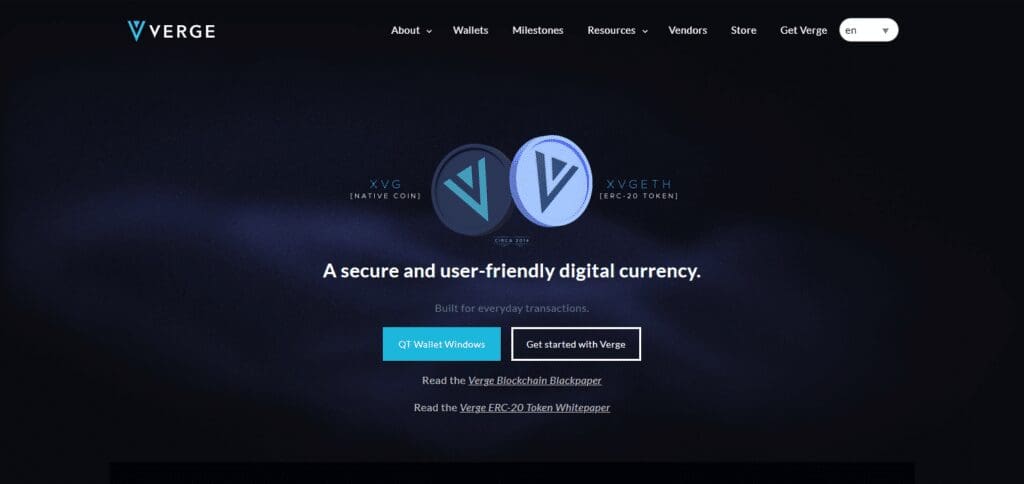
As a business decision, Kraken’s action also aligns with the broadening of anti-money laundering (AML) and other regulatory regimes that cut across different jurisdictions.
Users of XVG are advised to withdraw their tokens early enough before the set time so that they retain their sites.
This indicates the increasing difficulties privacy cryptocurrencies encounter as they seek to comply with new regulatory provisions.
Verge Features
Privacy-Focused: It utilizes Tor and I2P networks to conceal transactions.
Fast Transactions: The system provides quick, affordable transactions.
Regulatory Scrutiny: However, due to restrictions, it leads to secret as it attracted privacy issues.
Beam (BEAM)
Kraken has reported that it will no longer list Beam (BEAM) tokens within some regions as it works with censorship regulations regarding privacy-driven cryptocurrencies.
Beam, which implements Mimblewimble technology to enhance the security of transactions, has attracted disapproval for its capability to erasure carrying information, which complicates adherence to anti-money laundering (AML) regulations.

Kraken’s position is, however, not an isolated case but rather demonstrates a trend where other exchanges are also reconciling to emerging strict law.
BEAM tokens users on the Kraken platform are warned to withdraw their tokens to avoid being cut off from their assets after the submission date for delisting BEAM passes.
This action underlines that privacy-oriented tokens face growing difficulties in regulated jurisdictions.
Beam Features
The following features of Beam (BEAM) tokens available on Kraken, which are being delisted from the exchange:
Mimblewimble Protocol: It functions further securing privacy while at the same time improving scalability by implementation of obfuscated transactions.
Confidentiality Transactions: It facilitates its user to gather and send transactions in an unidentifiable manner.
Legal Issues: Privacy provisions created regulatory challenges as a result delisting.
Grin (GRIN)
Recently, Kraken has disclosed the reasons behind the Grin (GRIN) tokens delisting on a token’s continued use in specific regions – regulatory issues have emerged as a concern for countries using privacy tokens.
There are Grin users who use the Mimblewimble blockchain due to its increased confidentiality, but this particular quality drew the attention of regulators.

Grin coin’s withdrawal strategy seems to contrast other exchange trends of levelling up their Aml and compliance standards.
They recommend that any users who remain holding Grin on the platform withdraw their tokens before GRIN disintegration.
This shows how regulatory scrutiny on privacy-seeking digital assets in the global arena is increasing.
Grin Features
Secure Sidechains: This allows for permissionless and trustless sidechains on decentralized apps.
ZEN Ecosystem: Facilitates a wide range of decentralized apps and services.
Regulatory Pressure: Delisting followed concerns over privacy functionalities and global regulations.
Horizen (ZEN)
Kraken has recently responded to some regulatory pressures regarding privacy-centric blockchain by delisting Horizen (ZEN) tokens for some jurisdictions.
This discontent is described by Horizen’s offering optional privacy features through zk-SNARKs which has the effect of obscuring the use of the token and creating transaction anonymity, thus raising the compliance risk on the anti money laundering (AML) fronts.
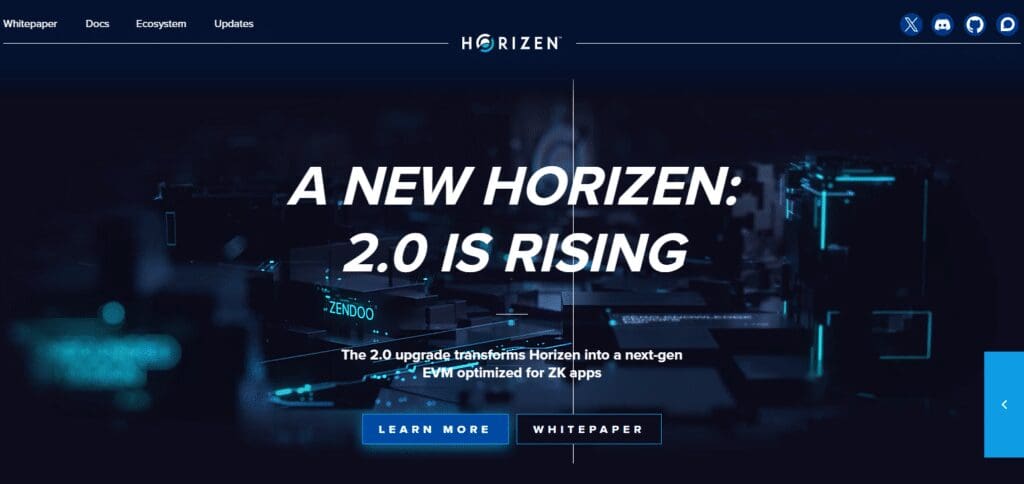
Kraken’s choice is in line with the general trend to respond to changes of the rule of law in the crypto industry.
For users still holding ZEN on Kraken while it is still possible, they should pull out their tokens before the cutoff time.
In a way, this supports the narrative of how ZEN and other such coins will struggle in this kind of financial environment that is becoming increasingly regulated.
Horizen Features
Here is the explained reasoning and regulation guideline regarding Horizen (ZEN) tokens on Kraken that will be delisted :
Decentralization: Horizen has built an extensive private and decentralized vertical node network.
Secure & Private Messager: Provides private message services via the blockchain.
Delisting Reasons: Privacy features introduced went against the regulatory frameworks.
Komodo (KMD)
The Komodo (KMD) Blockchain platform has efficiently utilized its ability to increase safety levels and scale without losing performance and also increase interoperability amongst blockchains and cryptocurrencies.
Atomic DEX integrates peer-to-peer trading across different blockchains, promoting seamless exchange.
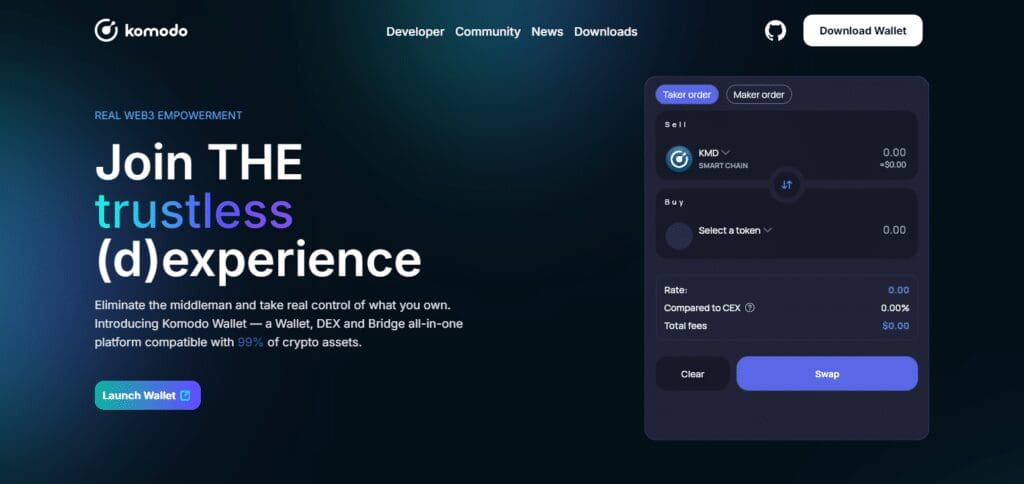
There’s a multi chain architecture, which allows for custom blockchains with custom consensus rules, and dPoW allows for secure networks and overall security in their blockchain.
Komodo Features
Atomic Swaps: Enables effortless transfers between chains with no middlemen.
Multi-Chain Support: Ensures the creation of custom blockchains while enabling secure connectivity.
Regulatory Issues: Such concerns over privacy and compliance made them delist the exchanges.
Secret (SCRT)
Kraken has announced the removal of Secret (SCRT) tokens in some jurisdictions while addressing the regulatory barriers that privacy cryptocurrencies often face.
Secret Network, which specializes in smart contracts that cannot be disclosed or embedded transactions which are encrypted, has also been criticized for issues related to transparency and anti-money laundering (AML) measures.

The action taken by Kraken fits with the general tendencies of the industry on compliance with the ever-evolving and tightening regulatory framework.
Holders of SCRT are directed to withdraw their tokens from the exchange before the announced end date of the delisting to ensure that they have access to their assets.
This resolution shows an increasing trend of pressure on privacy-oriented blockchain projects in a dynamic global legal environment.
Secret Features
Statistics in Perspective: SCRT stands for Self-controlled Reserved Tokens and aims to support censorship-resilient, decentralized apps and services backed by as many self-sovereign citizens as possible.
Non-Disclosure Preservation: Any EVM-compatible built or connected intelligent contracts or applications will combine on-chain non-disclosed characteristics with off-chain public attributes.
Totalitarian Governments: Key features of SCRT advertisers aim to dissolve the effort of a totalitarian state to impose barriers to the free development of society and technological advancement, which effectively are extremely Communist ideals.
Firo (FIRO)
Due to an expanding regulatory environment regarding cryptocurrencies, Kraken declared the delisting of Firo (FIRO) tokens in some places.
Firo, as a currency that enables private transactions (with Lelantus, for example), has been under constant pressure from regulators because it can hide the details of the sending of coins, leading to the violation of Aml policy.
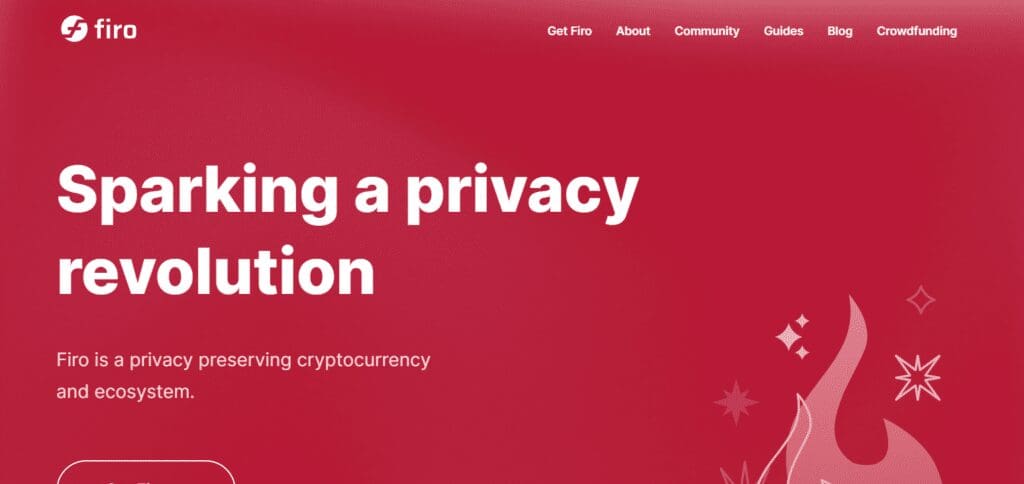
The decision of Kraken is an instance of a broader narrative of exchanges responding to changing laws in the crypto economy.
Users with FIRO tokens on their accounts with Kraken are suggested to withdraw their assets before the delisting date to avoid interruption of the services.
Firo Features
Here are some key features of the Firo (FIRO) tokens which are being delisted from Kraken:
- Lelantus Privacy Protocol: This allows for optional privacy of transactions and higher scalability.
- Quick and Cheap transactions: This allows fast transactions on the network at a low cost.
- Regulatory Issues: Compliance was a problem owing to the privacy features resulting in delisting.
How To Choose The Tokens on Kraken That are Being Delisted?
To determine which tokens will be delisted or which tokens get added/removed sludge in Kraken follow these steps through guidance:
Follow Kraken publishment
This is a true fact that Kraken does delist some tokens from time to time – such information is published by the company on its platforms or sent via letter. Always catch up with some headlines nie to miss tokens being infused.
Inspect the historical activity of specific tokens.
Trade volume, liquidity, and market depth should be assessed. Such tokens have the most excellent chance of getting delisted as they have the least volume or trading activity.
Check Census and Litigious situation.
Such tokens which have been delisted for non-compliance, however, seek out Litigation. More than not, we usually do face such a situation to prevent listing the tokens completely. Please check the news regarding litigation to that token.
Follow Internauts activity
The tokens may be delisted as the community gets smaller and no development is taking place. Follow the pages on social networks, forums and community spaces to derive if wow opinion is supported or interest is worn out.
Follow these points to make sure that a token does not get removed from Kraken and gets mutilated completely.
Conclusion
To sum it up, removing the top ten tokens on Kraken also indicates why the latter remains relevant and committed to regulatory and market safety standards.
While these tokens may no longer be circulated on this platform, users must be proactive and regularly track their investments.
One can look up other exchanges or wallets supporting those tokens to maintain consistency in one’s trading or investing plans.
Any token or policy changes should always be followed up with official updates from Kraken to ensure great flexibility in core strategy.







